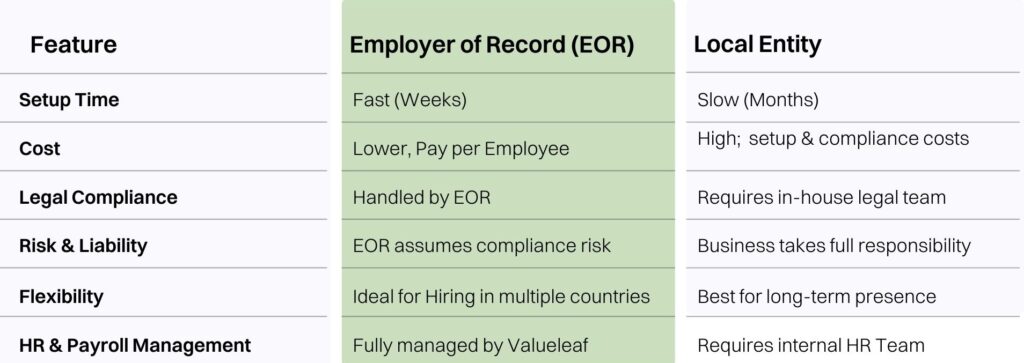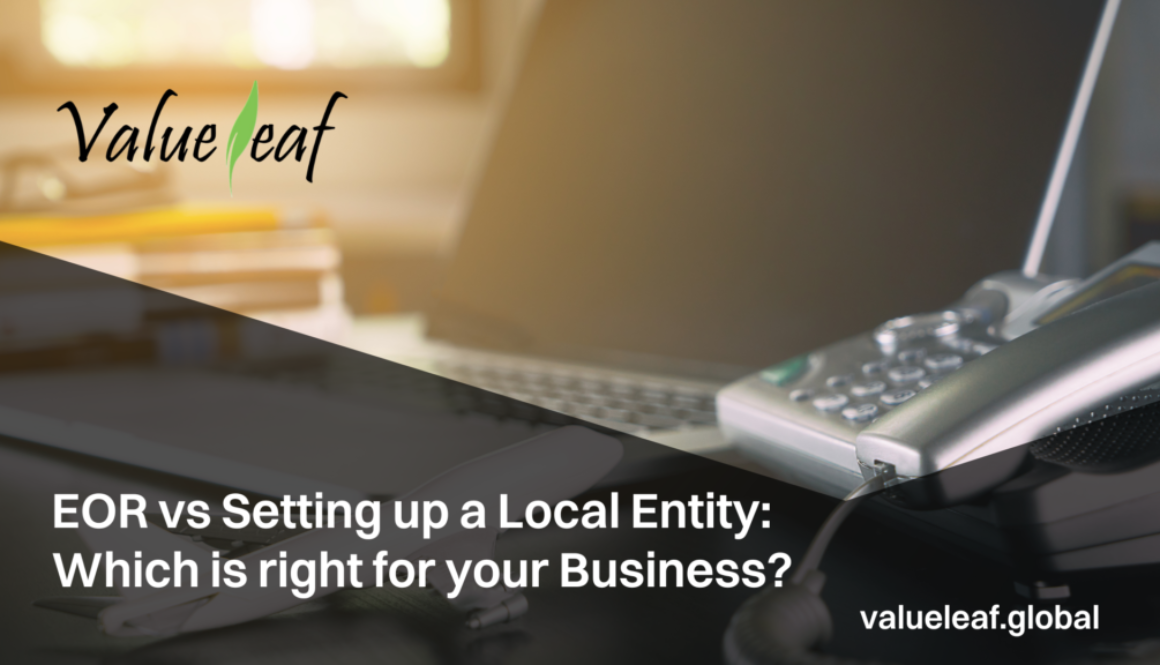Employer of Record (EOR) vs Setting up a Local Entity: Which is right for your business?
As businesses expand globally, hiring international talent becomes a key priority. However, managing payroll, compliance, and HR processes across multiple countries can be complex. Companies often face a critical decision: Should they set up a local entity or use an Employer of Record (EOR)?
This blog explores the pros and cons of both approaches to help you determine the best fit for your business.
What is an Employer of Record (EOR)?
An Employer of Record (EOR) is a third-party service provider that hires employees on behalf of a company in a foreign country. The EOR manages payroll, compliance, taxes, and HR responsibilities, allowing businesses to legally employ workers without setting up a local entity.
Key Responsibilities of an EOR:
✅ Hiring & Onboarding Employees
✅ Payroll Processing & Taxation
✅ Employee Benefits & Compliance
✅ Contract Management
✅ Local Labor Law Compliance
What is a local entity?
A local entity refers to a legally registered business in a foreign country. Establishing a local entity involves registering with local government authorities, setting up banking and tax structures, and hiring employees directly under the company’s name.
Key responsibilities of a local entity:
✅ Business Registration & Licensing
✅ Managing Local Payroll & Benefits
✅ Tax Filing & Compliance
✅ HR & Legal Support
✅ Employment Contracts
EOR vs. Local Entity: a comparative analysis

When should you choose an Employer of Record (EOR)?
✅ You want to hire talent quickly in a new market without setting up an entity.
✅ You want to test a new market before making a long-term investment.
✅ You lack legal expertise in the country’s labor laws and compliance.
✅ You want to avoid high costs and administrative complexity associated with entity setup.
Example Scenario
A U.S.-based tech startup wants to hire developers in Germany but doesn’t want to deal with German tax laws and payroll complexities. Using an EOR, the company can onboard employees legally within weeks without setting up a German entity.
When should you set up a local entity?
✅ You plan to expand permanently in a new country.
✅ You need full operational control over local business activities.
✅ You plan to hire a large workforce and require a dedicated HR infrastructure.
✅ Your business requires local licensing or regulatory approvals that an EOR cannot cover.
Scenario
A manufacturing company wants to open a production facility in India. Since it requires physical office space, local suppliers, and long-term hiring, setting up a local entity makes more sense.
Which option is best for your business?
If your goal is rapid expansion, low risk, and hassle-free hiring, an EOR is the best choice. However, if you have a long-term investment strategy in a foreign market, setting up a local entity is more suitable.
At ValueLeaf, we help businesses hire talent globally with our Employer of Record (EOR) services. Whether you need to onboard one employee or an entire team, we ensure full compliance, cost efficiency, and seamless payroll management.
Ready to expand Globally?🚀
Contact ValueLeaf today to learn how we can help you hire international employees hassle-free!



